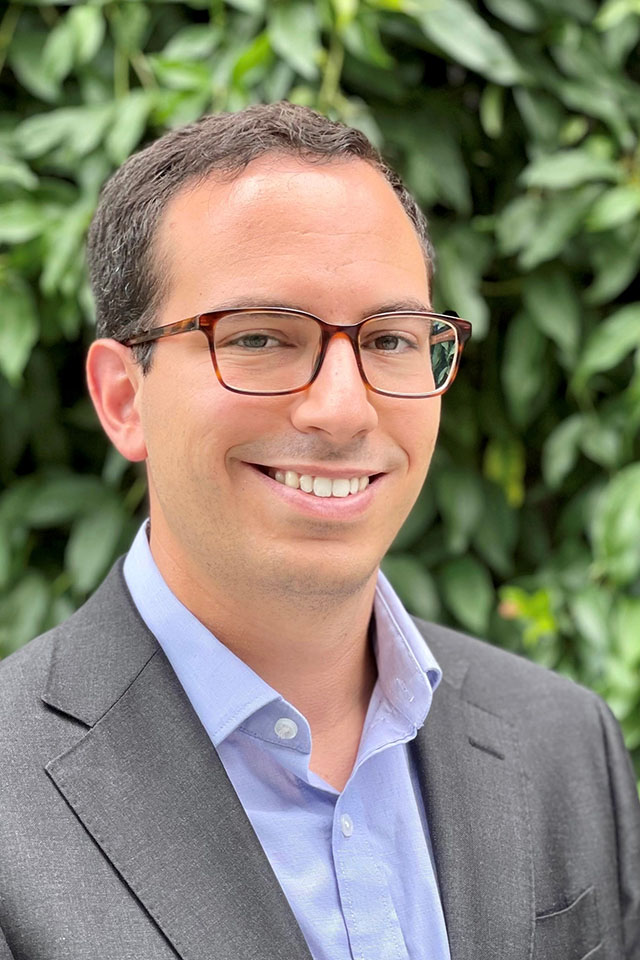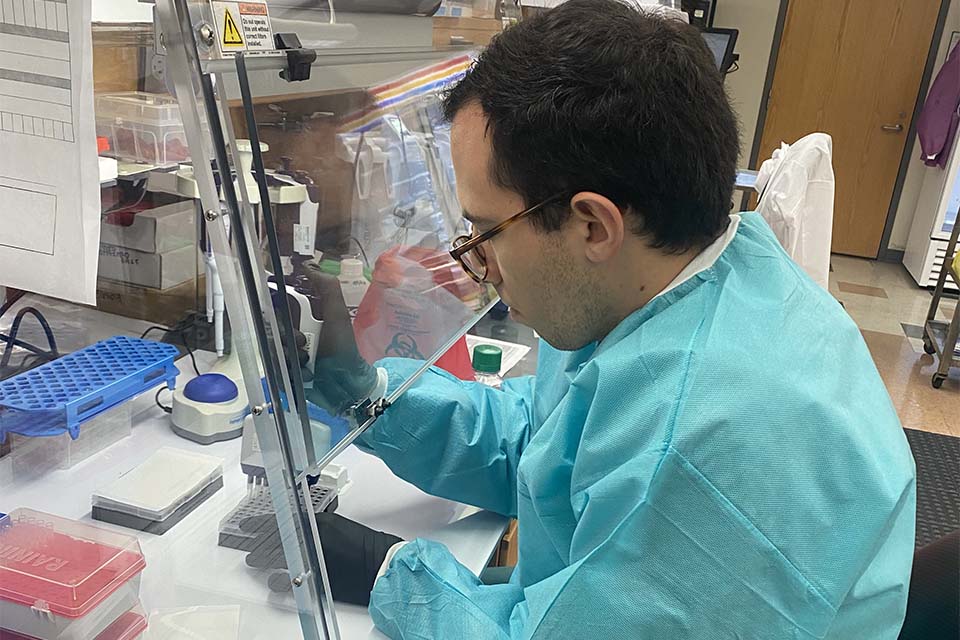The Power of Connection: One Alum's Role in Improving Public Health
Blake Bertrand, Ph.D. (DCHS ’18) is on a public-health mission to improve lives. Sifting through a variety of disease specimens from health care providers that aid in detecting or signaling infectious disease outbreaks, he is dedicated to forming connections and leaving things better than he found them. Those same values drew him to Saint Louis University, where he earned his bachelor’s degree in investigative lab sciences and formulated his quest for lifelong learning and new discoveries.
Currently serving as a Laboratory Leadership Service fellow, Bertrand is already living one of his dreams – working at the Centers for Disease Control and Prevention in the Georgia State Public Health Laboratory. From newborn screenings to immunology, virology, tuberculosis, bacteriology and dengue, he tackles pressing health issues while empowering communities to interpret data in a rapidly changing health landscape.
“Almost nothing can prepare you exactly for the job you end up doing, especially something so dynamic and evolving as public health,” Bertrand said.
Having recently returned from his fellowship deployment to American Samoa, Bertrand understands first-hand how quickly one change in the ecosystem can impact an entire island. The emergence of a new mosquito species and the 2024 CDC study finding that more than 60% of school-aged children on the island were exposed to dengue punctuated a new sense of urgency for disease detection. Local health officials had been relying on distant laboratories in Hawaii for testing, which often took up to eight weeks to produce results. For these communities, even a minor outbreak could spell disaster, since getting dengue more than once can be deadly. Time was of the essence.

Jumping into action, Bertrand and his colleagues learned how to conduct dengue tests on-site. The team also opened the doors to better communication within the community, helping the local population feel more comfortable seeking health services.
“It’s so important in public health to make human connections, especially when dealing with neglected tropical diseases, like dengue,” Bertrand said. “Starting that conversation with American Samoans was a huge step in improving their quality of life by tackling root problems.”
Before Bertrand discovered his true passion for investigative lab sciences, he envisioned a future in sports engineering. But he pivoted from that idea when one of his teachers recognized his potential for science and strongly urged the rising high school senior to apply to the Bobbie Cates Hicks Science and Medicine Academic Research Training (SMART) Program at Louisiana State University Health Shreveport. He loved the hands-on biomedical research — so much so that it changed the trajectory of his career journey to the sciences, he said.
Enter SLU. Under the mentorship of Doisy College for Health Sciences professor Rita Heuertz, Ph.D., Bertrand explored biologically active compounds found in plants and their effects on biofilms — the sticky layers of microorganisms that cling to surfaces.
“It was the coolest way to learn science,” he said.
Bertrand also decided to minor in health care ethics to complement his scientific pursuits, he said. He credits professors Amanda Hine, Ph.D., and Katherine Bendsten, Ph.D., for instilling a deep appreciation for collaboration and diverse perspectives.
I think it’s really easy to get caught up in the science of whatever you are doing but lose the greater impact. Ethics is at the core of everything we do and why we do it."
Blake Bertrand, Ph.D. (DCHS ’18)
“I took full advantage of the University’s offerings and really enjoyed my minor in health care ethics, which was the main benefit of going to SLU for me,” he said. “I think it’s really easy to get caught up in the science of whatever you are doing but lose the greater impact. Ethics is at the core of everything we do and why we do it. Just because we can do something doesn’t mean we should. We need to ask ourselves in what way should this best be used?”
Bertrand expanded his penchant for lab sciences and health ethics, earning his doctorate from the University of Nebraska Medical Center, where he researched the immune response to biofilms during prosthetic joint infections. He completed his doctorate studies amid the uncharted challenges of COVID-19, which he said he considers one of his proudest accomplishments.
For Bertrand, finding the needle in the haystack of pathogens creates life-saving pathways of connections that empower and heal individuals, communities and the world at large. And it’s a process that never ends.
“To foster new discoveries, we must be lifelong learners, critical thinkers and humble leaders,” Bertrand said. “I’m still searching. I think our purpose in life is to find joy in the day-to-day, do what makes you happy and make things slightly easier and happier for more people.”
Do you know a SLU alum who deserves a spotlight? Let us know! Email alumni@slu.edu.


















